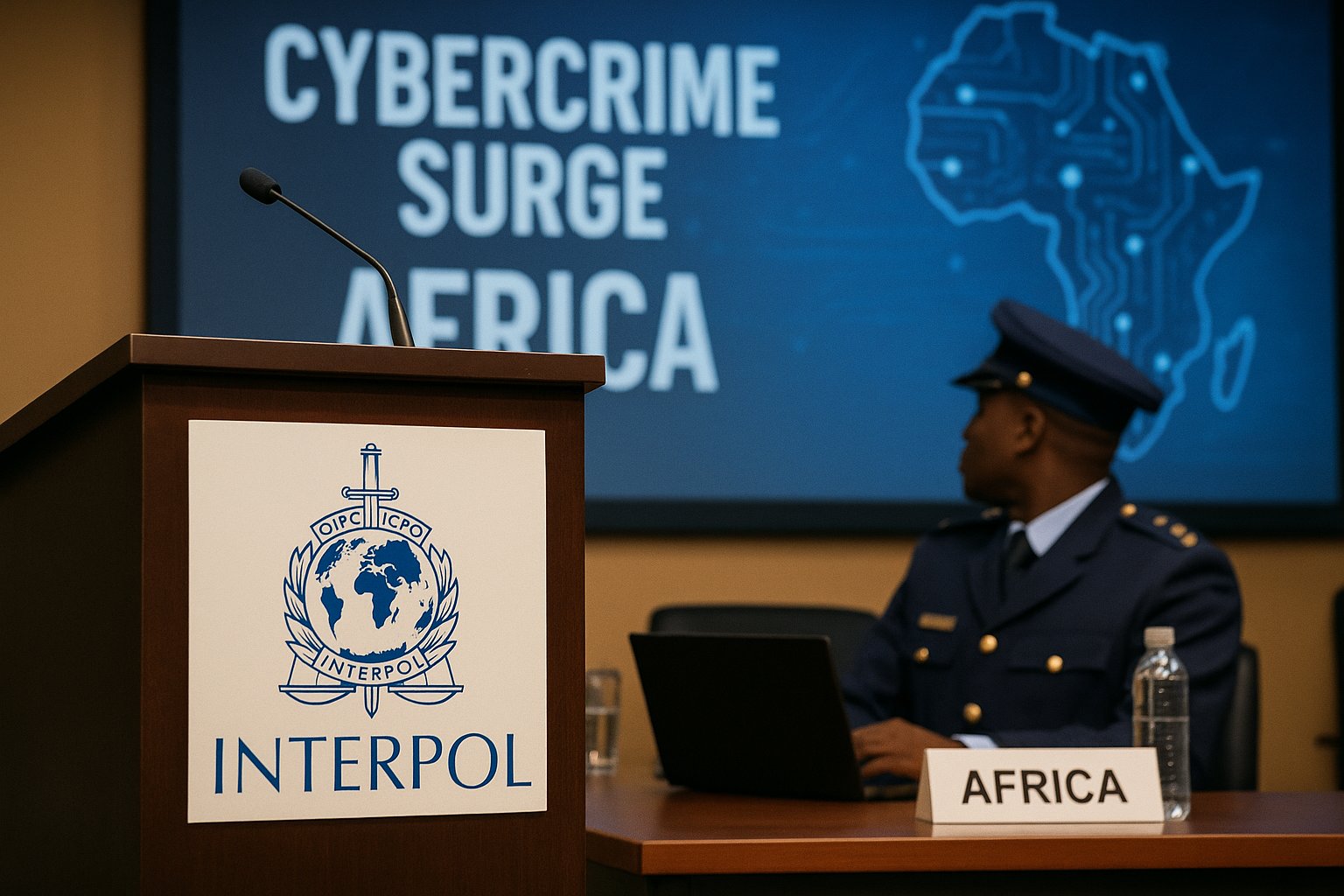A new INTERPOL report has highlighted a concerning rise in cybercrime across Africa, revealing that digital offenses account for a significant percentage of all criminal activities on the continent. The report, published this week, indicates that two-thirds of surveyed African nations have reported that cybercrime represents a medium-to-high proportion of their overall crime rates.
In certain regions of Western and Eastern Africa, the cybercrime rate has surged alarmingly, with some countries reporting that it has reached or exceeded 30%. The report identifies the most common cyber threats as online scams, ransomware, business email compromise, and digital sextortion, with notifications of suspected scams increasing by a staggering 3000% in some areas over the past year.
Ransomware attacks remain a pressing challenge for the continent, with South Africa and Egypt leading the way with 17,849 and 12,281 reported attacks respectively. Nigeria and Kenya follow with 3,459 and 3,030 attacks, underscoring the widespread prevalence of this issue. Furthermore, 60% of African nations have identified an increase in digital sextortion incidents, where offenders exploit stolen or AI-generated sexual images to coerce victims.
Despite these alarming statistics, the report highlights that many African countries are ill-equipped to tackle the surge in cybercrime. The study indicates that 90% of respondents believe that their law enforcement capabilities need “some or significant improvement” to effectively counter these threats. While some efforts have been made to strengthen cybercrime legislation, only 30% of nations possess incident-reporting platforms, and less than 20% have operational cyberthreat intelligence databases.
Moreover, opportunities for cross-border cooperation on cybercrime investigations remain limited, with over 86% of law enforcement agencies citing insufficient collaboration. Despite the bleak outlook, INTERPOL points to ongoing initiatives such as Operation Serengeti, which resulted in over 1,000 arrests across 19 African countries in connection with cyber-related crimes, as evidence of progress in fighting this epidemic. Similarly, Operation Red Card, a multinational effort spanning from November 2024 to February 2025, led to more than 300 arrests across seven nations.
In conclusion, while the rise of cybercrime poses a grave threat to Africa, there are signs of resilience and progress. Continued investments in resources and training for law enforcement will be critical as the continent grapples with emerging dangers such as AI-driven scams and deepfake technology.

